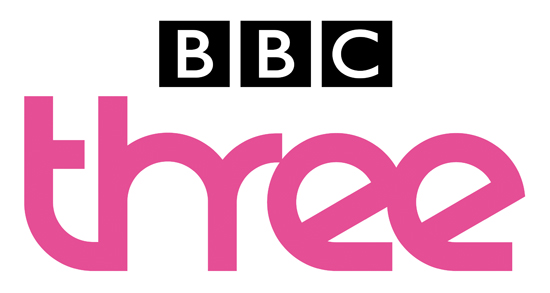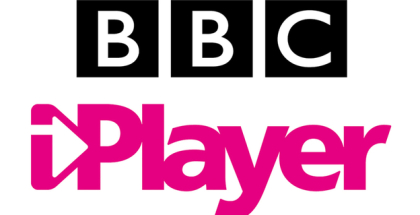BBC confirms plans for new online BBC Three
David Farnor | On 26, Nov 2015
The BBC Trust has officially given the go-ahead for the transformation of BBC Three into an online-only channel in early 2016.
The plans to close the linear BBC Three as we know it were first announced in March last year, prompting a wave of campaigns to save the channel. Now, after a period of consultation and reviewing the proposals, the BBC Trust has officially given the new-look BBC Three the green light.
The move is certainly one that fits the times: over 50 per cent of video viewed by 16-24 year olds is not live TV and over 90 per cent of 16-24s own a smartphone and have at least one social media account. In 2003, that was 0 per cent, notes Damian Kavanagh, Controller of BBC Three.
“When BBC Three launched in February 2003 YouTube, Spotify, Instagram, Snapchat, Netflix, Sky+, Tinder, Chip and pin, Periscope, One Direction and Oculus didn’t exist. Nobody had Wi-Fi, broadband, flat screen TVs or tablets,” he writes on the BBC Three blog. “The Nokia 1100 was the world’s bestselling phone.”
The Trust’s approval comes with several conditions designed to ensure that, while cutting budgets, the online-only channel will not mean a reduced service for younger viewers.
Firstly, long-form BBC Three programmes must be broadcast on BBC One or BBC Two on an ongoing basis – effective immediately on closure of the linear channel. These must be broadcast across a range of times throughout the UK, preventing the Beeb from simply screening them in the wee small hours of a Tuesday morning.
BBC One and Two are also required to offer “distinctive” programmes “specifically aimed at younger audiences”, including the long-form BBC Three programmes shown on the channels. Furthermore, this content must be continue to take creative risks and experiment with new talent and ideas.
Many viewers have also raised the important issue of accessibility: there is no point in a channel being available to stream on multiple devices but without subtitles. The online BBC Three is therefore required by the Trust to have the “same accessibility standards as the TV channel, wherever practicable”.
These conditions will be monitored and enforced by an official review of the online service within the next 18 months.
What will the new BBC Three show? The same as the old BBC Three, argues Kavanagh.
Indeed, the channel has had a successful year, with the impressive Under The Skin and Breaking The Mould seasons enjoying acclaim from audiences, while informative and provocative content, such as the recent “Is This Rape?” programme, is also being requested by organisations for training programmes. Shows like Asian Provocateur, meanwhile, have regularly been in the BBC iPlayer’s “Most Popular” list.
So far, the BBC has already confirmed new seasons of People Just Do Nothing – which began life as a web series that was picked up by BBC Three and premiered on iPlayer before its linear broadcast – as well as Murder In Successville, plus the recently announced Doctor Who spin-off, Class, new drama Thirteen and new drama doc Murder Games. Live From The BBC will also be introduced: a showcase for new British stand-up.
The move arrives as BBC iPlayer performs a similar role in offering a platform to talent that would not normally have opportunities on traditional linear TV: the original film Fear Itself, released for Halloween, is by a young blogger-turned-filmmaker, while My Jihad, a short-form romantic comedy that began as a BBC Three Original Drama Short, is one of the best things on TV this year.
80 per cent of BBC Three’s reduced budget will be spent on long-form TV, with 20 per cent on short-form content. whether that’s picture-led stories, animation, authored pieces – “basically any way we can tell a story most effectively for our audience”, comments Kavanagh.
Daily content will be provided online, with programmes organised by themed strands relating to topics that matter to young audiences, such as relationships, online life, crime and health.
“We will also recruit a group of young people to work with us to test our ideas and create content in collaborative ways,” reveals Kavanagh. “This group will consist of unheard voices and digital creatives who can create content that relates to their lives and the issues that matter to them.”
A recruitment campaign for these young collaborators will be launched “very soon”.
With the Trust’s conditions in place, the final plans appear well thought through, with lots of potential: it is telling that, while approving plans to extend CBBC’s hours to 9pm and develop iPlayer beyond a catch-up service (to include third party content, the Trust has rejected the proposal of a BBC One +1 channel. In an age of streaming services, after all, a +1 channel is an anachronism from 10 years ago. Rather than wait for the rest of linear TV to lose its appeal, the BBC’s move to an online-only destination as soon as the start of next year is proactive, innovative – and, should the Trust’s conditions be upheld, genuinely exciting. Exactly the things that BBC Three should be.



















